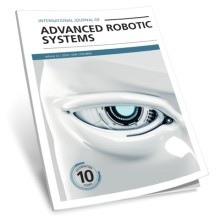
Robohub.org
Robotics then and now: Interview with Peter Corke
In this interview, Peter Corke gives us a retrospective on the differences between the field of robotics now and when he just started his career 30 years ago, pointing out what strikes him as the most important milestones in robotics in the past 10 years. He goes on to share his view on the role of editorship, and the difference between robotics research papers and articles published in a robotics magazine, as well as his perspective on traditional publishing vs open access publishing.
He gives us a detailed overview on his latest work concerning the application of robotics in agriculture with the aim to increase food production while lowering the costs of farming efforts, the importance of further developing the sub-fields of environmental monitoring and preservation, and the advantages and disadvantages of starting a robotics labs nowadays and using social media to promote internal activities.
Prof. Corke also reveals who inspired him the most in his career (including the likes of Malcolm C. Good, Richard Paul and Rodney Brooks), as well as what fictional robot he grew up watching – we give you a hint in the form of bright red claws tagged Class M-3 Model B9.
 Peter Corke lives in Brisbane with his wife and a cat. By day he’s a professor at Queensland University of Technology. By night he maintains two open-source toolboxes, one for robotics and one for vision. His interests include robotics, computer vision, embedded systems, control and networking. He worked on robotic systems for mining, aerial and underwater applications. You can learn more about his work and what he wanted to be when he grew up in this interview.
Peter Corke lives in Brisbane with his wife and a cat. By day he’s a professor at Queensland University of Technology. By night he maintains two open-source toolboxes, one for robotics and one for vision. His interests include robotics, computer vision, embedded systems, control and networking. He worked on robotic systems for mining, aerial and underwater applications. You can learn more about his work and what he wanted to be when he grew up in this interview.
Corke P. IJARS Video Series: Peter Corke Interview with the International Journal of Advanced Robotic Systems [online video]. International Journal of Advanced Robotic Systems, 2014, 11:V1. DOI: 10.5772/59497
If you liked this post, you may also be interested in:
See all the latest robotics news on Robohub, or sign up for our weekly newsletter.
tags: Peter Corke, video




